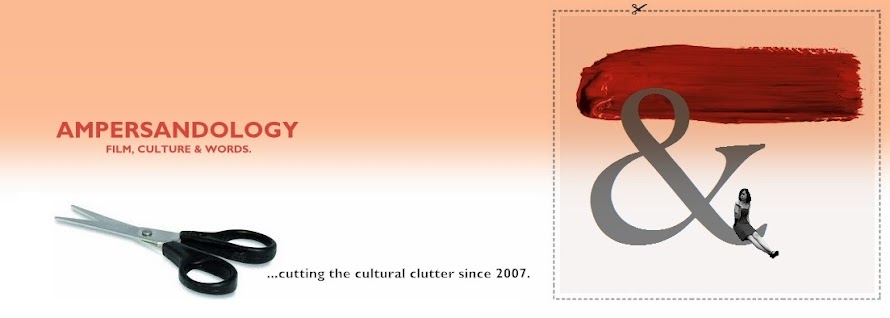
10 Books I Love to Hate
The best way to fight the massed ranks of recommended books is with an offensively glib and, if possible, ill-informed reason for not bothering with them.
Part of what my beloved liberal arts education has instilled in me is a deep and abiding trust in my own judgment—however spotty and ill-advised. Not only am I comfortable with refusing to slug through a “classic” for my own good, I’m also okay with making fun of it. A lot. Preferably using a logic that most ten year olds would dismiss as “unsound.”
A bunch of guys in a forest with jewelry. Neat. Let’s talk about THAT for three books and one prequel. Suuuuper.
See also: The Old Man and the Sea, Ernest Hemingway
This book taught me the word “didactic.” Even at the tender age of 11, I realized there was something worrisome about a story that could take a sentence to sum up IN ITS ENTIRETY—“This guy finds a really big pearl but the village goes nuts so he gets rid of it; yay socialism!”—taking instead the length of a novella. It’s actually a pretty good litmus test for tedious literature—The Old Man and the Sea failed too. I closed those books with a resentment that only a school-age child forced to read something can summon.
Homeboy was paid by the word. So while I don’t resent the man’s enterprising spirit—“Hey, why say in ten words what I could say in a hundred and fifty, thus collecting many more monies?”—I do resent having to read it. It’s not very good—in fact, I’ll go hogwild and say it’s very bad. No, really: plot a story. Beginning, middle, end, right? Wrong. Add a false start, three middles and an end and a half. Oh, and an epilogue. OR TWO. That’s Dickens.

4. Finnegan’s Wake, James Joyce
I believe James Joyce’s great cosmic joke is contained in this book, his one great UP YOURS to the world: “Say,” he may have said to himself, “if I write a book that’s the literary equivalent of alphabet soup, I wonder if I’ll be rightly laughed out of town, or if everyone will praise its genius and study it for years to cover up the fact that they don’t get a bloody word of it.” Joyce, you magnificent bastard, you won’t fool this girl. By God, not this time.
5. On the Road, Jack Kerouac
This one is complicated. When I initially read On the Road–I’d say around 13 or 14—something clicked. I wasn’t totally on board that slow-moving hobo train because, you know, it was plodding, and no one in it was particularly likable, but there were some great bits in there. When I re-read it recently, I learned that’s all this book had: great BITS, while everything else is a holy mess. At the end of the day, for all my liberal, quasi-Bohemian tendencies, I still close the book wanting to scream at every useless character: “GET A JOB, you damn hipster. And be nice to your girlfriend. Hobo jerk.”

6. The Adventures of Huckleberry Finn, Mark Twain
I only choose this because it has none of the hotness that is The Adventures of Tom Sawyer. That kid is awesome! Painting fences and taking names, I love it. Huck Finn was so lame in comparison, with his stupid raft and his moral of the story. Not the book, which was actually pretty good, but the boy. Huck Finn had no idea what time it was, while Tom Sawyer bought the damn watch. Thus proving what deeply intellectual reasoning I employ.
7. The Catcher in the
Nope, too easy. Moving right along...
8. The Sun Also Rises, Ernest Hemingway
The name of the title is arbitrary—I dislike almost everything this poor old sod put out on principle. Our styles don’t match: I like good writing and he likes good editing. Also, the fact that his characters bear not only a striking resemblance to Ernest himself but also, um, to each other. Notice that? Macho, rugged brute that is either literally, spiritually or emotionally impotent? Ding-ding, we have a pattern!
9. Pride and Prejudice, Jane Austen
Oh, that Lizzy Bennett. So plucky and fiercely independent! No one can tell her what to think or how to think it, no sir. And to be so young, and yet so wise about the whole crazy mess of it—just listen to the witty barbs she throws out from the safety of her armchair. Oh, she must have read so much about this thing called Life to be able to talk about it so authoritatively. She’ll marry for love, ignoring the realities and social constructs of her time and most likely driving her family into the poorhouse. Oh, but Lizzy sticks to her guns. Never mind that she ends up marrying not only for love but for money too—effectively confining her to the stiff, moneyed life she so deplores! It’s Mr. Darcy, after all, and he’s both dreamy AND emotionally available. I’m sure they’ll be super happy together.
10.
It was a toss-up between this and The Rime of the Ancient Mariner, because I cannot decide which I hate more. I’m not sure how much longer I can talk about either one of them because I will just get angry and start to break things. I hate them mostly because the phrase “prose poem” should be an oxymoron, but isn’t. T.S. Eliot and I seemingly stand alone against the tyranny of illogical prose-poets. They’re dirty fighters—hair-pullers, every one. I just…I just don’t understand. If it’s prose, it’s prose. If it’s a poem, IT’S A POEM. That’s like…making a sculpture painting. Or a photograph movie. I have to write a haiku to calm my nerves:

Prose-poems hurt my brain
Whose shades are thrown in anger?
David Caruso’s.

No comments:
Post a Comment